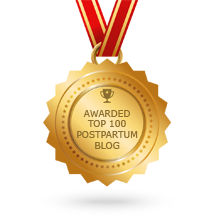More than the Blues: Perinatal Mood Disorders
/Today we are welcoming Jaime Coates, LCPC, NCC, on our blog to share her personal and professional story that led her to supporting with perinatal mood disorders. We hope you find this informative and inviting. Jaime is a sweet soul who is fantastic at her job and if you're experiencing symptoms that are "more than the blues", we hope you'll reach out.
If you are preparing for pregnancy, are pregnant and planning to deliver soon, or have recently given birth, you have probably heard the term, postpartum depression or baby blues. What is this exactly? How do you know the difference between the two? You have probably wondered if you are at risk for developing these symptoms or might be experiencing these symptoms and not sure how to handle them.
Jaime Coates, LCPC, NCC
I am a Licensed Clinical Therapist and currently provide mental health therapy at Seaside Counseling and Wellness Center in Berlin, Maryland. I have been working in the Behavioral Health field since 2009 and more recently have expanded my practice to work with the perinatal population. After becoming a mom two short years ago, the transition into parenthood was way more than I expected. My husband is the oldest of 6 siblings and frequently reminded me of how much work parenthood would be. I have been the youngest in my family and usually carry a determined and go-getter attitude, so I would always quickly respond with, “we can handle it, how hard could it be?” Transitioning to this new role as a mom was one of the hardest challenges I have ever faced. I enjoy sleep; I value sleep and believe it is extremely necessary to function appropriately. I was prepared for going to the hospital, I was prepared for the delivery, and I was prepared for being tired, but I wasn’t prepared for the amount of exhaustion we would undergo the days after delivering a newborn. I wasn’t prepared for the changes in my body, the hormones, and the uncertainty. I wasn’t prepared for how hard breastfeeding would be, the newborn cries that made your heart ache or the difficulty with night time. I think I searched a million forums trying to find answers or reassurance that what we were doing or the way she was acting was ok. Long story short, this adjustment to parenthood was tough. I always valued and appreciated my parents, but this new role provided me with a newfound respect for parents, mothers and especially single parents; as I highly appreciated the support and help from my husband throughout this transition.
As a mom, we can sometimes be perceived as these magical, strong creatures that can handle anything (which is true), however we also need some time to ourselves, time to heal, time to understand our emotions. It’s ok to feel the way we do, it’s ok to be tired, it’s ok to feel drained while going through these adjustments. It’s ok to take care of ourselves!
Moving into a private practice agency this past year, I became more aware of our local resources and supports. I soon realized that there were not many, if any therapeutic services in our community with a sole focus on moms, parents or those interested in becoming parents and struggling with infertility. A lot of women may be experiencing severe stress, anxiety or depression and are hesitant to seek help or support due to underlying fears or unknown judgments. A lot of moms don’t get the support or help that they need because they are nervous, scared, embarrassed or believe, “this could never happen to me.” One out of seven moms experience postpartum distress related to depression or anxiety, but yet there is still limited conversations about it. The more we talk, the more we help! Once one person speaks out on infertility or mental health issues or seeking parenting help, so many others join in with the same questions or share that they too have been in a similar situation. My goal is to raise awareness for perinatal health, for women and parents going through tough or challenging adjustments. I want to help expecting or experienced parents know that they are not alone and that there is professional help that can provide tools or resources for a happier, less stressful transition and lifestyle.
What is a Perinatal Mood Disorder?
Perinatal is the term used to describe the period of pregnancy and the first year after the baby is born. It is important to remember that a disorder is considered when these symptoms are severe enough to interfere with your daily functioning and can occur in more than one setting. Perinatal Mood Disorders include Anxiety, Panic Disorder, Depression, Obsessive-Compulsive Disorder, Post Traumatic Stress Disorder, Bipolar Disorder as well as Postpartum Psychosis. Perinatal Mood Disorders can appear during pregnancy or days or months after childbirth. Even though the known term is “Postpartum,” symptoms and disorders can begin during pregnancy.
Baby Blues versus Postpartum Depression
The baby blues effects between 60%-80% of new moms. Symptoms for baby blues includes crying, feeling overwhelmed with this new role as well as feeling uncertain, some sleep deprivation and fatigue. These symptoms arise partly due to the extreme hormone fluctuation after giving birth. Baby blues lasts no more than 2 days to 2 weeks after delivery. Baby Blues is not as severe as postpartum depression, the timing of symptoms occurs soon after delivery and the duration is no longer than 2 weeks. Depression can include a prolonged period of sadness and crying, possible suicidal thoughts or ideations, appetite changes, sleep disturbances, poor concentration and focus, irritability and anger, hopelessness or helplessness as well as guilt or shame, feeling extremely overwhelmed, lacking feelings towards your baby, possible inability to take care of yourself, loss of interest in activities, possible anxiety, isolation mood swings or worthlessness. It is important to remember that a disorder is considered when symptoms are severe enough to interfere with one’s daily functioning.
Helpful Therapy Services
The world of Women’s health and wellness is ever growing and is starting to expand on the Eastern Shore. If you or someone you know is experiencing symptoms or changes related to perinatal mood disorders, difficulty with a pregnancy or becoming pregnant, adjusting to parenthood or are experienced parents going through life adjustments of high stress, mental health therapy can help.
I have recently received a certification of training in Perinatal Mood Disorders from the Postpartum Support International and have over 8 years experience working in the mental health field, dealing with anxiety, depression, PTSD, and other related mood disorders. I provide a safe and non judgmental environment to help clients discover their strengths with the use of client centered, solution focused, strength based and cognitive behavioral therapies. Therapy helps by meeting the client where they are at, and assists in building appropriate skills for the presenting problem. Therapy can provide education or act as a support and motivator by helping to improve symptoms of stress or sadness, communication skills, reduce irritability and learn how to maintain a healthy and happier lifestyle.
I understand how difficult it can be planning a pregnancy, the transition into parenthood or managing the different phases of your child’s life. With my professional background and training, I am here to support and help other moms or future moms and parents with these adjustments. If you or someone you know is experiencing any of the above mentioned symptoms or changes, please call me at Seaside Counseling and Wellness Center at 410.973.2525 or you can check out my website at www.jaimecoatestherapy.com or www.Postpartum.net for more information and to learn more about the different Perinatal Mood Disorders.
















